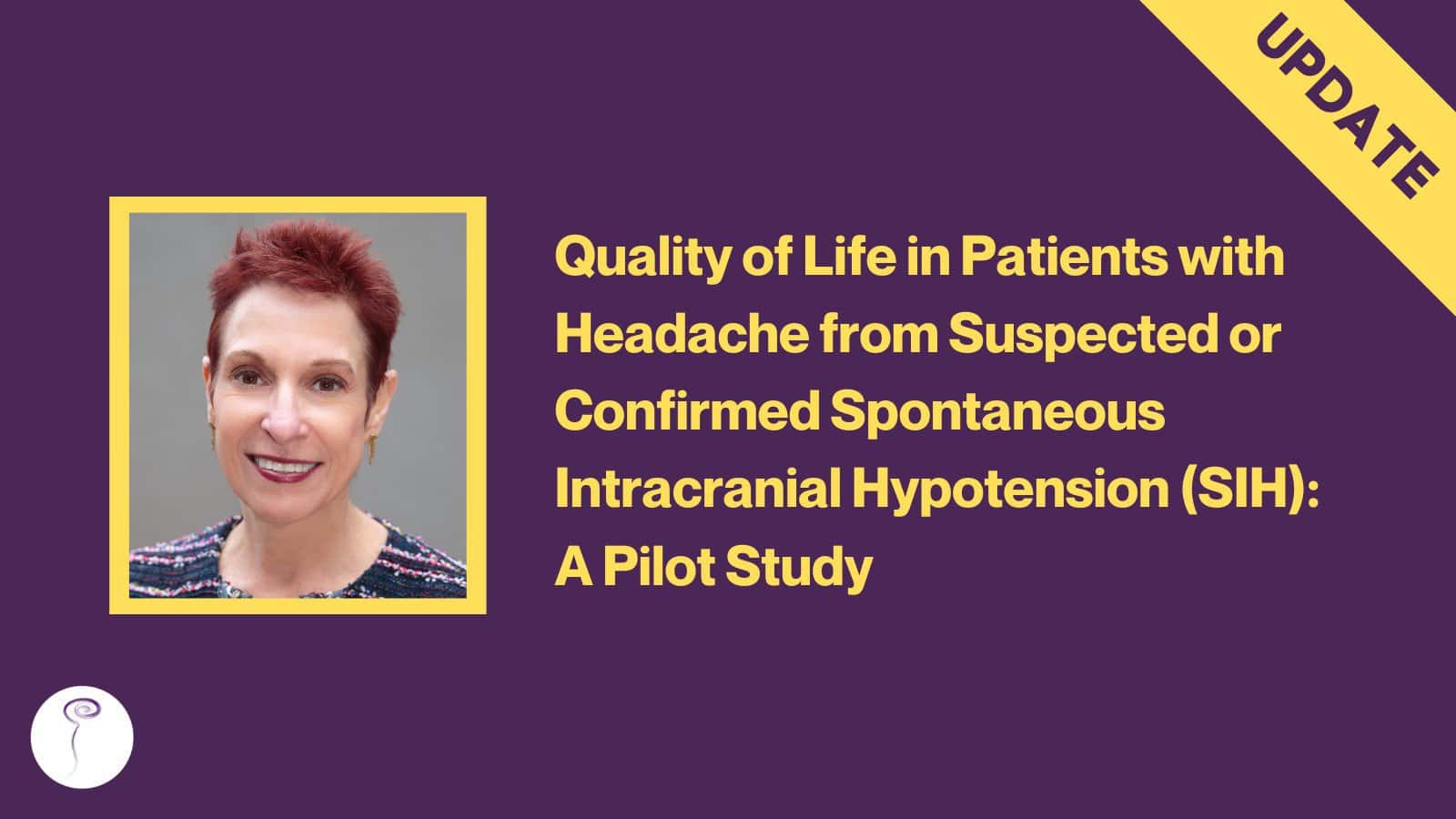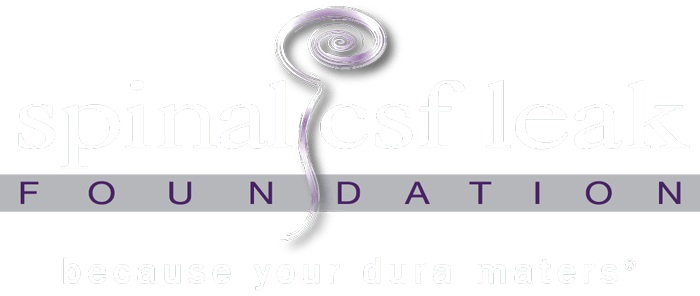
Research update
In early 2022, the Spinal CSF Leak Foundation awarded a research grant to Dr. Deborah Friedman for a pilot study titled “Quality of Life in Patients with Headache from Suspected or Confirmed Spontaneous Intracranial Hypotension (SIH).”
The objective of this pilot study was to quantify the various aspects of quality of life in SIH and compare them to published data from other neurologic conditions producing similar symptoms and affecting a similar population. As Dr. Friedman noted, the impact of SIH on quality of life has never been systematically investigated or documented in the medical literature. And yet we know that SIH has a profound impact on physical, mental, and spiritual well-being that is comparable to, or more severe than, other neurologic disorders producing similar symptoms.
Recently, she shared with us her early findings, noting that her team found these results “striking and powerful.”
Early results
Dr. Friedman, medical student Victor Liaw, and biostatistician Dr. Morgan McCreary were able to share the following about the study thus far:
“Our pilot quality of life (QOL) study included 106 patients from our practice at UT Southwestern who had either confirmed (using ICHD-3 diagnostic criteria) or suspected (based on clinical symptoms, responses to blood patches) spinal CSF leaks.
All participants completed self-administered, standardized questionnaires online including measures of general QOL (SF-36), depression (PHQ-9), anxiety (PHQ-9), spiritual well-being (FACIT-Sp-12) and headache disability (HIT-6) and were then invited to participate in an interview assessing suicidality (C-SSRS).
Overall, general QOL was poor with average scores 30 points lower than the general population in physical health, social functioning, and pain domains. The average depression score was in the mild to moderate range, but almost half of respondents scored in the moderate range or worse. 75% of participants scored in the most severe category for headache disability. Of the 59 participants who completed the C-SSRS, over half expressed a wish to be dead and 25% had suicidal behavior.
There was no difference in these outcomes between the group with definite leaks compared to those with suspected leaks. We continue to analyze the data in more detail.”
Further reading:
Please see our Research page for more information about the research we fund thanks to your donations.
